Child abuse: ‘I help prevent online sexual abuse’
- Published
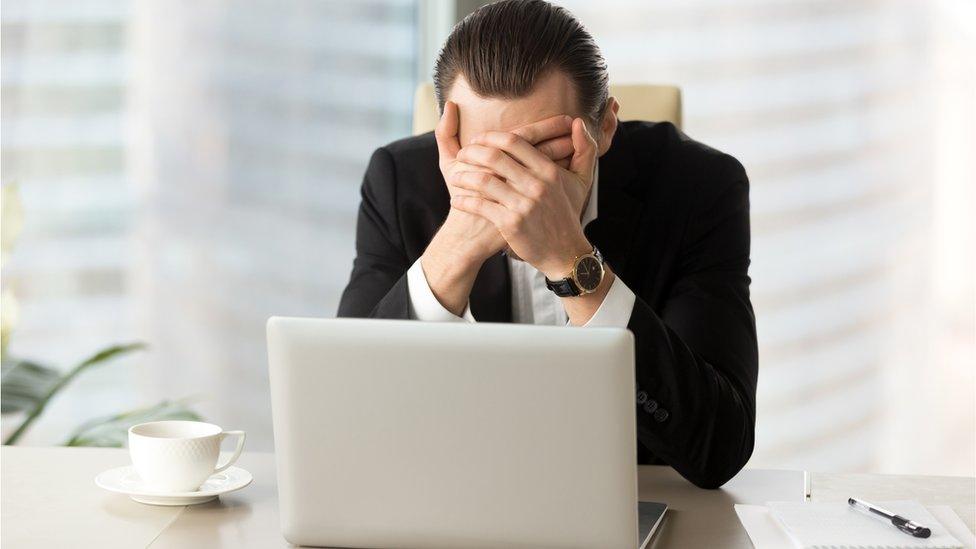
Those worried about their online behaviours "have to be given an opportunity to change", says Gillian Jones who works with offenders
"To work with someone who is perhaps perceived as the worst person in the world, to help them... can be really fulfilling."
Gillian Jones helps people who are worried about their urges to view sexual images of children online.
She works for the Lucy Faithfull Foundation, external, a UK-wide child protection charity dedicated to preventing child sexual abuse both offline and online.
"It doesn't come without challenges," said Ms Jones.
But she added: "I think people have got to be given an opportunity to change."
She is the assistant national manager for the charity's Stop It Now! project in Wales, and works with families, offenders and those worried about becoming offenders.
In the 12 months from November 2018, a total of 2,804 callers and web-users from Wales contacted the project's anonymous UK and Ireland helpline and self-help website - a 97% increase on the previous 12 months, the charity said.
"The biggest step they can take is to seek help," Ms Jones said of those who are worried about their own behaviours.
Often people can be put in touch with the charity after being in contact with the authorities.
"That's the harsh reality of having a knock on the door from the police," she explained.
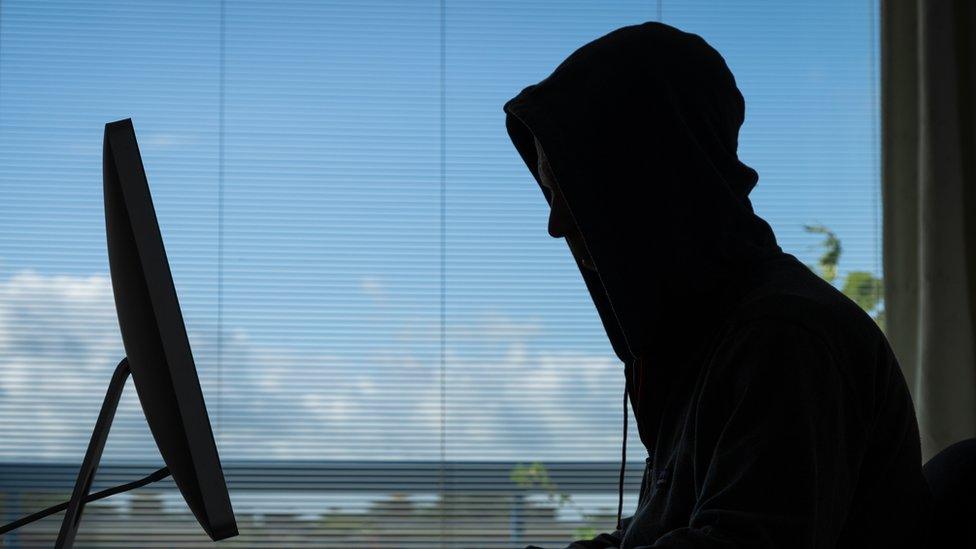
The job "doesn't come without challenges", says Gillian Jones
The charity offers individual or group courses for people who have been arrested, cautioned or convicted for internet offences involving indecent images of children. It also has a self-help website.
"For me it's about trying to put them at ease," Ms Jones, who is based in Flintshire, said.
"They've already been judged by lots of people in their lives."
During the sessions, they discuss behavioural processes and the impact of their actions.
'You've got to be robust'
Of course, talking about these urges does not make for pleasant listening, with Ms Jones explaining it "can be pretty grim".
People discuss things that they have never shared with anyone else, she added.
But Ms Jones gets support from colleagues and is careful to separate home and work.
"You've got to be resilient, you've got to be robust," she explained.
The charity also provides support for the loved ones of a person who has been looking at illegal content online.
Ms Jones said they can often "feel like they're the only person in the world who is experiencing this".
She added that for wives "there's a whole stigma about them just being in that relationship".
"It's about supporting them over the choice they have to make," Ms Jones said.
The Stop It Now! anonymous helpline, external takes calls from concerned parties or those worried about themselves and aims to stop the viewing of sexual images of under-18s online.
Callers agree actions they can take to manage their short and long-term online behaviour and helpline operators also discuss the possibility of any direct risks to children, including in the caller's own family, to ensure those children are protected.
But the charity's workers are not the only ones providing support over the phone for those in a dark place.
'We are just a voice at the end of the phone'
Kat Jones, from Barry, has been a volunteer for the Samaritans, external - which takes calls 24-hours a day from people who are struggling - for four years.
She spotted a campaign by the charity on Christmas Day a few years ago and "something just clicked".
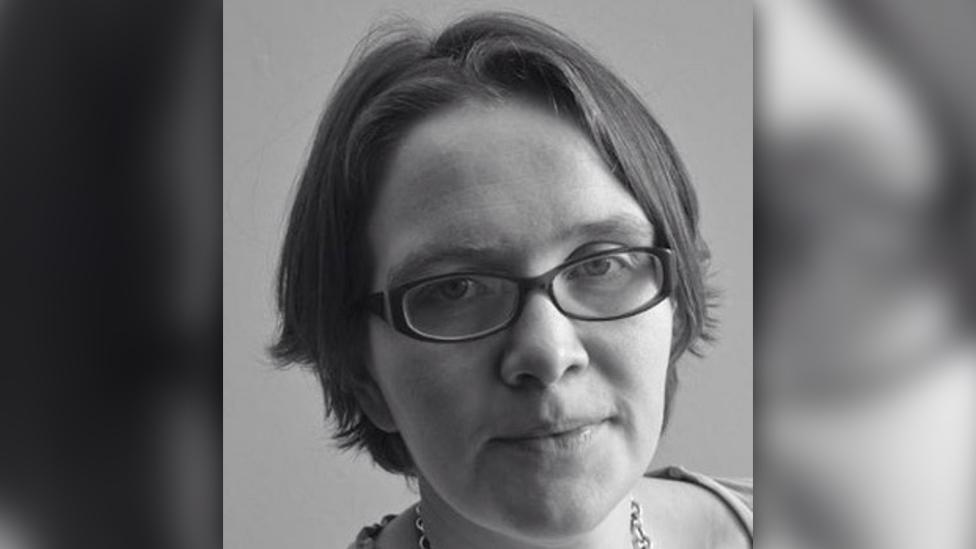
Kat Jones said she was "constantly humbled" by people's courage to call the Samaritans
Most people picture callers wanting to take their own lives when they think about the charity.
The Samaritans do not offer advice, they explore the caller's feelings and ask if they have attempted suicide before.
"Suicide can actually be a temporary feeling," Ms Jones, 37, explained, adding that talking about it "immediately takes the stigma away".
"I think some people would find it difficult to have that conversation with their family," she said.
"We are just a voice at the end of the phone."
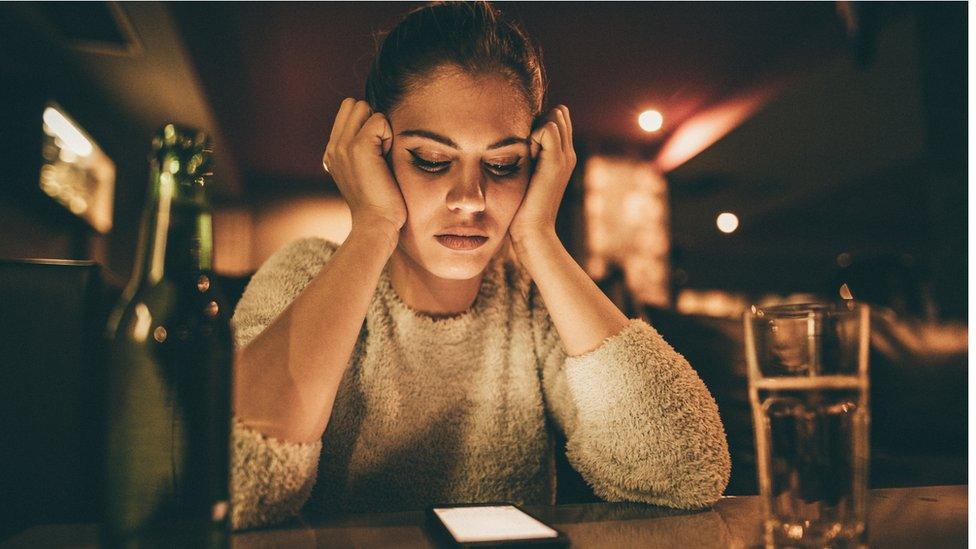
The Samaritans get calls from people upset over "anything you can think of"
Ms Jones, who works as a stage manager, takes about six or seven phone calls per shift, and explained: "We're here for everyone, not just people who are suicidal."
The charity is in contact with people who are upset over "anything you can think of".
Ms Jones said she was "constantly humbled" at people's courage to call them and share their most personal thoughts.
Of course, volunteers need to look after themselves too.
Ms Jones said she finds talking to older, more isolated people difficult, and said her colleagues were a big support system.
"I learned very quickly I can only be there for that person when I have contact with them," she explained.
"It's enough for me to know I was there to pick up the phone."

If you have been affected by the issues raised in this article, help and support can be found at BBC Action Line.
- Published11 September 2017
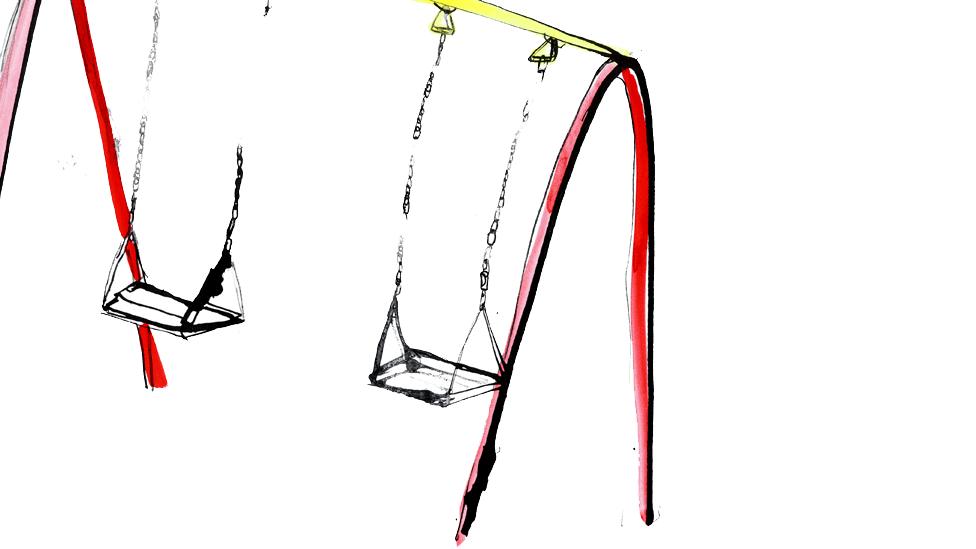
- Published7 April 2016